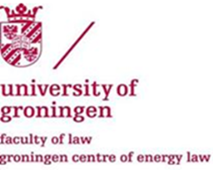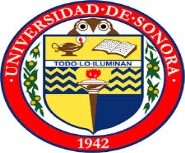


WSB University in Wrocław in cooperation with the University of Groningen, the University of Sonora and the International Journal of Climate Change Strategies and Management announce a Call for Papers for the 13th ISINI Conference 2018.
CLIMATE CHANGE REGULATION 2.0 – MAKING THE PARIS AGREEMENT WORK
- Interdisciplinary session on climate change regulation, as part of the 13th Conference of the International Society for Intercommunication of New Ideas (ISINI);
- To be held at WSB University in Wroclaw, Poland, Thursday 30 and Friday 31 August, 2018;
- Session organized by Dr Edwin Woerdman in cooperation with Dr Wytze van der Gaast, Andries Nentjes and Prof. Walter Leal, under supervision of conference organizers Prof. Joost Platje and Prof. Francisco Vargas.
Climate change regulation is spreading across the globe, at an ever-higher speed. The first laws and regulations to reduce greenhouse gas (GHG) emissions were developed about two decades ago in a limited part of the industrialized world. Nowadays, due the greater climate urgency, the number of countries with climate change regulation has increased. Command-and-control regulation but also emissions trading and carbon taxation is implemented from Europe to the Americas and from Asia to Africa. Moreover, not just governments, but also various cities, companies and citizen groups are strengthening their efforts to combat climate change.
Challenges
The adoption of the Paris Agreement in 2015 illustrates this upward global trend of climate change regulation, with a commitment for all countries to communicate national plans for GHG emission reductions, the so-called Nationally Determined Contributions (NDCs). Nevertheless, climate change regulation faces several challenges:
- GHG reduction efforts take place against the backdrop of growing global energy demand;
- The urgency of climate change exists alongside several development urgencies (e.g. 1.5 billion people not having access to electricity), which may (not) be in line with low-emission development;
- Some climate technologies face low public acceptance due to perceived risks or vested interests;
- Climate change strategies and management are challenged by increased political uncertainty because the relevance of climate policy, or climate change, is questioned by some political actors.
These challenges illustrate that climate change regulation operates in complex domestic and international policy environments, where climate measures co-exist with other environmental, energy and social policy instruments. Questions that regulators are confronted with when formulating NDCs are for example: what are the most effective, efficient and acceptable policy packages for low-emission pathways, what is the institutional capacity to deal with social and economic challenges in developing countries and regions, how to address risks and uncertainties, and what are the opportunities for international collaboration on climate change regulation?
At the 13th Conference of International Society for Intercommunication of New Ideas (ISINI) 2018, these and other questions will be addressed in a session on Climate Change Regulation. The conference will be held in the same year in which countries will convene in Poland (CoP24) to take stock of their collective climate policy efforts and to further elaborate measures towards the ‘Paris goals’, which makes this session very timely.
Your paper at ISINI
ISINI has its roots in economic science but explicitly aims to stimulate interdisciplinary research. Therefore, we welcome papers from economics and from the other social sciences, including sociology, political science, psychology, philosophy, history, as well as law. Papers can be theoretical and qualitative, but also empirical and quantitative. We welcome papers on all aspects of climate change regulation, preferably those that develop new ideas, related to science or policy, at different administrative levels.
Paper submission and acceptance for the conference will take place in the following five steps:
- Submission of paper abstract (deadline 1 December 2017).
- Acceptance of abstract and invitation to submit a paper (1 January 2018).
- Submission of paper for review (deadline 1 March 2018).
- Feed-back on paper and, when accepted, notification of paper acceptance (15 April 2018).
- Submission of full –working– paper (deadline 1 July 2018).
Selected papers, after positive double blind peer review, may be considered for publication in the:
- International Journal of Climate Change Strategies and Management,
- Central European Review of Economics and Management, or
- Central and Eastern European Journal of Management and Economics.
The conference fee of 175 euro includes meals and coffee breaks during the conference. The fee does not include accommodation, but the conference organizers can help with finding a hotel.
To submit an abstract, please email a Word or PDF file to both Edwin Woerdman at and Joost Platje at with the subject line “ISINI SUBMISSION”, by 1 December 2017 at the latest. Abstracts and papers will be assessed by the following persons:
- Edwin Woerdman (Associate Professor, University of Groningen, The Netherlands),
- Wytze van der Gaast (JIN Climate and Sustainability, Groningen, The Netherlands),
- Andries Nentjes (Professor Emeritus, University of Groningen, The Netherlands),
- Walter Leal (Professor, editor Internat. Journal of Climate Change Strategies and Management),
- Francisco Vargas (Professor, University of Sonora, Hermosillo, Mexico),
- Joost Platje (ISINI President, conference organizer, Professor, WSB University in Wroclaw, Poland).
